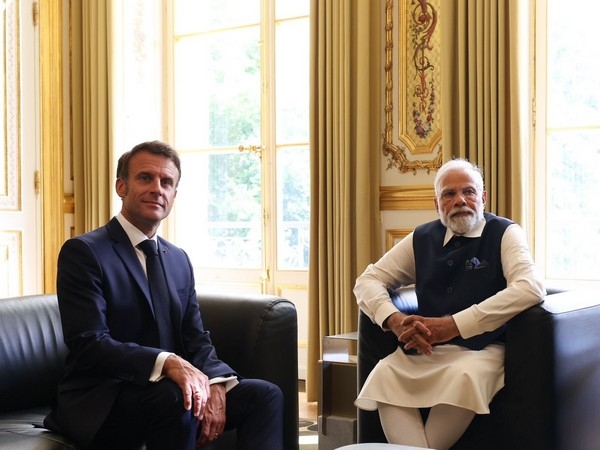Usha Ramanathan offers the most radical hypothesis of the note ban yet

This may be the most radical hypothesis of government's demonetisation policy offered yet. The proposition, which explains the origins and future of the currency ban, sounds like the script of a sci-fi movie. Somewhere in it, is a group of a few people trying to control the fate of billions of Indians.
And black money doesn't figure anywhere in it.
Noted expert on law, poverty and human rights, and an active critic of the Aadhar policy for last several years - Usha Ramanathan - says that in order to understand demonetisation one has to go back to the founding of Aadhar and the Unique Identification Authority of India (UIDAI) programme.
It is all about data. Lots of it. Specific data of millions of Indians. Now suppose this huge repository of data, accessible to the makers of UIDAI programme, was to be used to create an application - like Unified Payment Interface - that made money transfer very easy.
Also read - Agenda driving Modi govt's demonetisation move is clear: activist Bezwada Wilson
It would allow instant transfer of money from bank to individual, individual to individual and government to individuals. Such a bold move, made on such a large scale, would not only force the economy to go 'cashless' or 'paperless', it would also in time make banks redundant.
And if, just then, there were to be a severe cash crunch in this economy, it would only catalyse the move to such an application.
But this would also give you reasons to fear for your personal data being compromised and monetised on a mass scale.
In this interview with Catch, Ramanathan asks us to suppose a scenario like this and claims that we haven't even begun to realise the biggest problem with the demonetisation scheme.
At the face of it, demonetisation seems to be a big positive for several reasons. But there are many things that we don't know about it.
We still don't have any explanation by the government about why this was done. Why 86% of the cash flow couldn't have been phased out strategically. Something as big as this should have gone through the Parliament.
There is no indication of who advised the prime minister about this. On the political front, we only have opposition and justification.
The government has been converting all services to cash transfers at a time when the banking system in India isn't ready. When successive governments' apathy has destroyed the postal service in the country. When inflation is under control and the value of Rupee isn't sliding down.
At such a moment, to suck out 86% of the cash flow in one go doesn't make sense.
But if you begin to look at the whole thing in context of the UIDAI project, demonetisation begins making sense.
How does the UIDAI project connect with this?
To understand what demonetisation is about, you first have to understand what the big technological fight in the world right now is about. It is about data. New Fintech (Financial technology) firms are fighting to acquire specific data of individuals; to use it to market their products among other things.
Fintechs are willing to give you their services without charges, if only you give them information about yourself.
Acquiring specific data of millions of people, which is what happened through Aadhar programme, across the country, is like acquiring a goldmine. Now if you can get all these people online, you create for yourself an invaluable asset.
Once you do that, you can build a platform [or an API] for people to create apps, giving them a share of your data. Apps that could have access to one billion people. Imagine the potential worth of such data!
This gives rise to big businesses and forces the economy towards a 'cashless' economy, or an economy with less cash.
This system allows you to transfer money not from bank account to bank account, but from Aadhar number to Aadhar number. All it would require your Aadhar number, a bank account, say a Jan Dhan account and a mobile number.
Banks, as we understand them become redundant. You wouldn't need to visit any bank. Everything becomes virtual, like Paytm. You wouldn't know where Paytm office is nor would you have to visit it, unlike banks where physical presence is required sometimes.
So what's wrong in a virtual banking system? Wouldn't it be easy to manage every financial transaction through your phone instead of dealing in cash and signing forms?
Look closer at the method with which this new world of economy is being introduced. First Aadhar was a voluntary exercise, then it was made compulsory. Aadhar was not mandatory to avail government offered services, now it is.
Fears of your personal data being compromised was quite real in case of Aadhar, in this case there will be additional fears of your financial data being sold and monetised by others will be as real.
In a similar fashion the state is using all its power and coercive forces to lead us in this specific direction. And this is not the only problem with it.
The same fears that arose that the time of Aadhar, get multiplied several times over if private companies like National Payments Corporation of India (NPCI), which is a company registered under companies act, not RBI, get their hands on your private financial data.
And if they make it mandatory that all financial transactions be done through apps based on their interface - Unified Payment Interface (UPI).
Look up the names of people behind all these ventures - UIDAI, NPCI, UPI etc - and you'll realise that they are the same group of people. The same group of people, a while back, talked about it taking just 100 individuals to change the system. They are trying to do this now - deciding the fate of this country.
What is worse still is that a large part of the population is not covered through regular banking. They have no access to either banks or internet. If the government decides to send benefits of schemes such as - MGNREGA, pensions, scholarships, Public Distribution System - through such an electronic interface, a lot of people are going to be left out.
Are any other economists or experts in this field who share your ideas?
I don't think so and I can't believe nobody is looking in this direction.
According to you Aadhar has been followed by Unified Payment Interface. What do you think will follow it?
Health. They will go for health sector next.
Edited by Aleesha Matharu
More in Catch - 'Exasperated by impractical currency ban': Thomas Franco, bankers' union
Plight of a banker: 'note ban has left us helpless to ease human misery'






![BJP's Kapil Mishra recreates Shankar Mahadevan’s ‘Breathless’ song to highlight Delhi pollution [WATCH] BJP's Kapil Mishra recreates Shankar Mahadevan’s ‘Breathless’ song to highlight Delhi pollution [WATCH]](https://images.catchnews.com/upload/2022/11/03/kapil-mishra_240884_300x172.png)

![Anupam Kher shares pictures of his toned body on 67th birthday [MUST SEE] Anupam Kher shares pictures of his toned body on 67th birthday [MUST SEE]](https://images.catchnews.com/upload/2022/03/07/Anupam_kher_231145_300x172.jpg)






